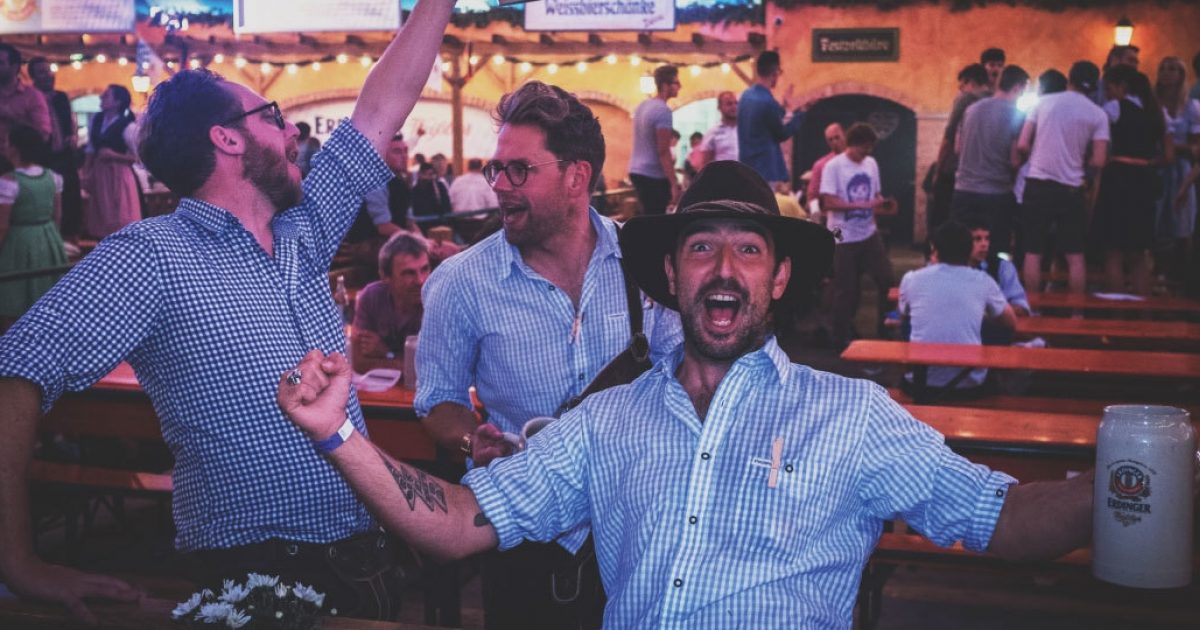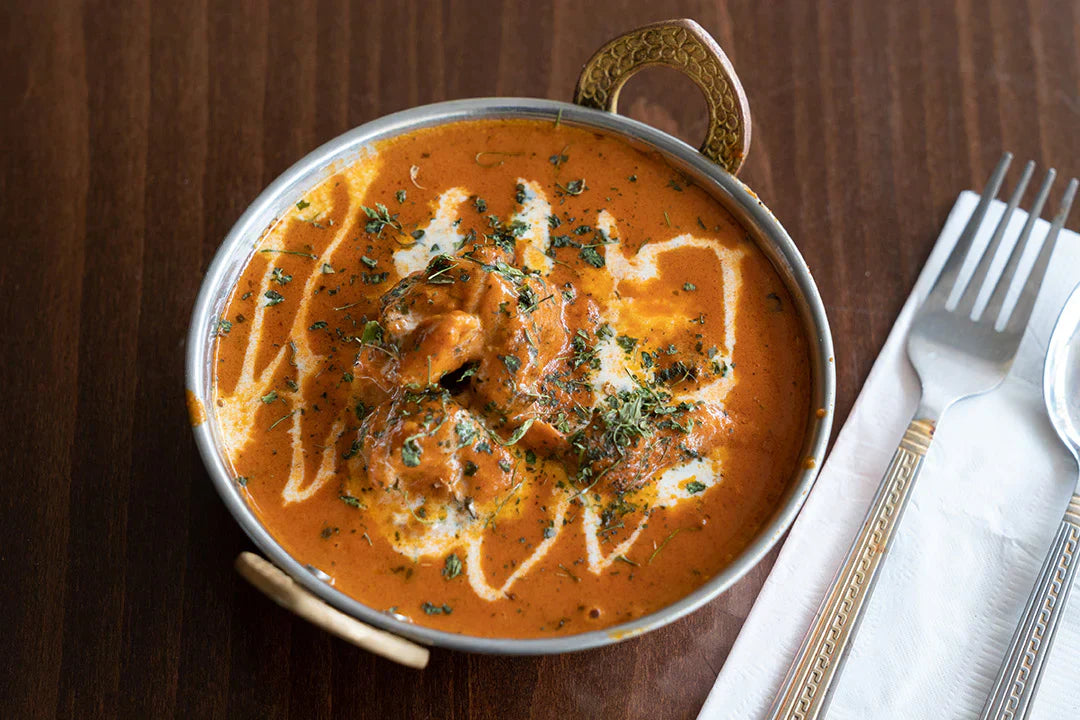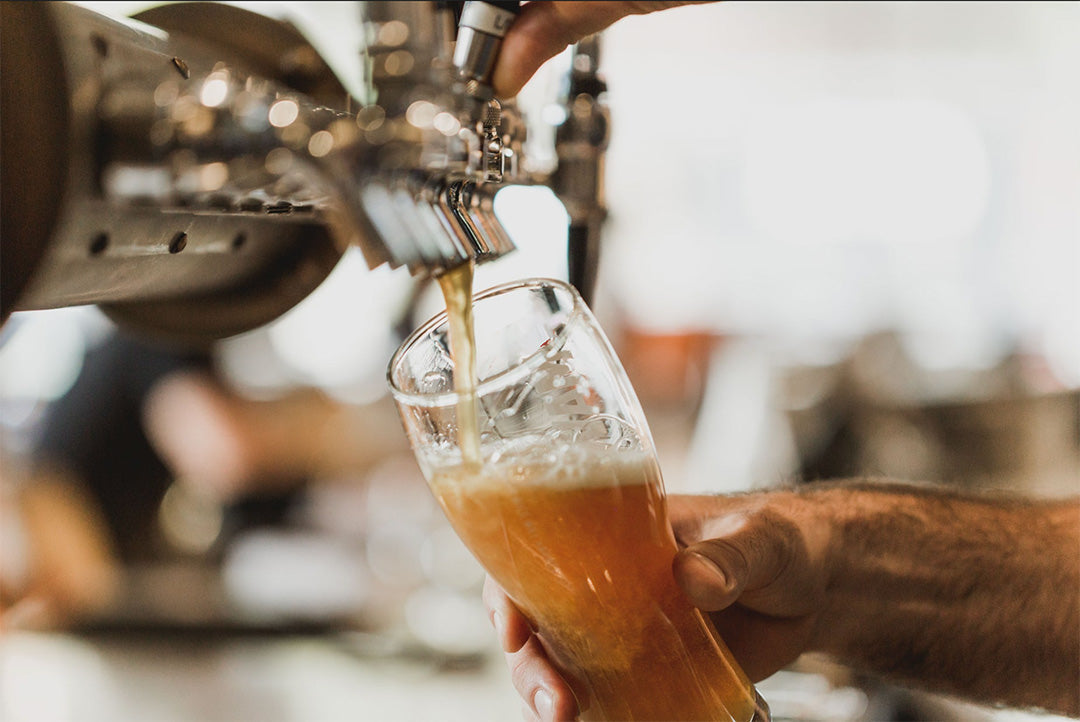
The History of Oktoberfest
September 11, 2024
The History of Oktoberfest.
Oktoberfest is one of, if not the most famous beer festivals in the world attracting huge numbers of visitors to Munich, Germany every September and October.
It is known for its lively atmosphere, traditional Bavarian music, and of course the beer.
But how and when did this iconic event begin and how has it evolved over the years? In this blog we look at the history of Oktoberfest.
1. The Origins of Oktoberfest, A Royal Wedding Celebration.
Oktoberfest dates back to October 12, 1810, when Crown Prince Ludwig of Bavaria (later King Ludwig I) married Princess Therese of Saxony-Hildburghausen.
To celebrate the royal wedding, a grand public event was held on the fields in front of the city gates of Munich, which were later named "Theresienwiese" (Theresa’s Meadow) in honour of the princess. The festivities included horse races, parades, music, and feasting, drawing citizens from across Bavaria.
This initial event was such a success that it was decided to repeat the horse races the following year, laying the foundation for what would become an annual tradition. By 1811, the event had already expanded with the addition of an agricultural show aimed at promoting Bavarian agriculture.

2. Early Evolution: From Horse Races to Beer Tents.
While the horse races were the original highlight of the event, beer soon began to play a more central role. By the 1818 Oktoberfest, small beer stands began to appear, catering to the crowds attending the festivities. As the years passed, these stands evolved into large beer tents and halls, which have become the heart of the modern festival.
In the mid-19th century, amusement rides, games, and carnival attractions began to be introduced, making Oktoberfest a more family-friendly event. Despite the addition of these new elements, beer remained a key component of the festival, with Munich’s local breweries playing a significant role in shaping its character.

3. The Impact of History: Oktoberfest Through War and Change.
Oktoberfest has been cancelled 24 times throughout its history, primarily due to wars, epidemics, and financial difficulties. The most notable interruptions occurred during the Napoleonic Wars, World War I (1914-1918), and World War II (1939-1945). During these years, smaller, more localised versions of the festival, often called "Autumn Festival" (Herbstfest), were held, but they were a far cry from the grand celebrations of traditional Oktoberfest.
The festival resumed its full splendour in the post-war years, gradually reclaiming its position as a major cultural event. The 1950s marked a significant turning point when the traditional "Wiesn" (a local term for Oktoberfest) officially reintroduced the ceremonial tapping of the first keg by the Mayor of Munich, a tradition that continues to this day.

4. Growth and Globalisation: Oktoberfest Goes International.
By the late 20th century, Oktoberfest had grown well beyond its Bavarian roots. The festival began to attract millions of visitors from all around the world and similar Oktoberfest celebrations began popping up around the globe, from the USA and Canada to Australia and Japan. Today, you can find Oktoberfest events in major cities worldwide.
Despite this international expansion, the Munich Oktoberfest remains the largest and most authentic, with over 6 million visitors each year consuming more than 7 million litres of beer. The event also features traditional Bavarian music, folk dances, and classic German foods such as pretzels, sausages, and roasted chicken.

5. Oktoberfest Today: Traditions and Modern Twists.
Modern Oktoberfest still adheres to many of its historical traditions, blending them with contemporary elements. Key highlights of the festival include:
-
The Grand Entry of the Oktoberfest Landlords and Breweries Parade: A traditional parade featuring horse-drawn beer wagons, bands, and participants in traditional Bavarian costumes, celebrating the official opening of the festival.
-
The Tapping of the First Keg: The festival officially begins when the Mayor of Munich taps the first keg of Oktoberfest beer, declaring “O’zapft is!” (“It’s tapped!”). This symbolic act marks the start of the 16- to 18-day celebration.
-
Traditional Bavarian Attire: Many attendees don traditional Bavarian outfits—lederhosen for men and dirndls for women—adding to the authentic atmosphere of the event.
-
Family Days and Attractions: Oktoberfest has evolved to become more inclusive, with special family days offering discounted rides and games. The festival grounds are filled with amusement rides, games, and stalls selling a variety of foods and souvenirs.
6. Fun Facts About Oktoberfest.
-
Despite its name, Oktoberfest usually starts in September and ends in the first weekend of October. This change was made to take advantage of the milder weather in late September.
-
Only beer brewed in Munich and adhering to the Reinheitsgebot (the German Beer Purity Law of 1516) can be served at Oktoberfest. This includes iconic Munich breweries like Augustiner, Hofbräu, Löwenbräu, Paulaner, Spaten, and Hacker-Pschorr.
-
Oktoberfest waitresses can carry 10-15 1litre steins at a time.
-
Oktoberfest lagers are the Marzen which are darker and malt forward and Festbier which are the lighter more hop forward lager.

In conclusion.
Oktoberfest is not just a beer festival, it’s a celebration of Bavarian culture, history, and tradition. From its royal origins to its status as a global phenomenon, Oktoberfest continues to captivate people worldwide with its unique blend of history, festivity, and camaraderie.
We also have a wide range of authentic German lagers.





